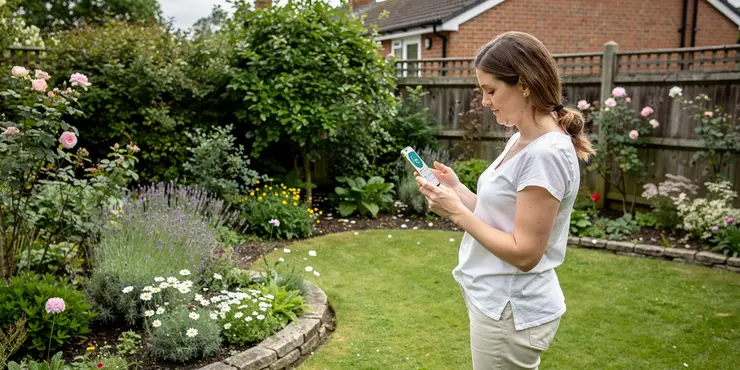
Find Help
More Items From Ergsy search
-
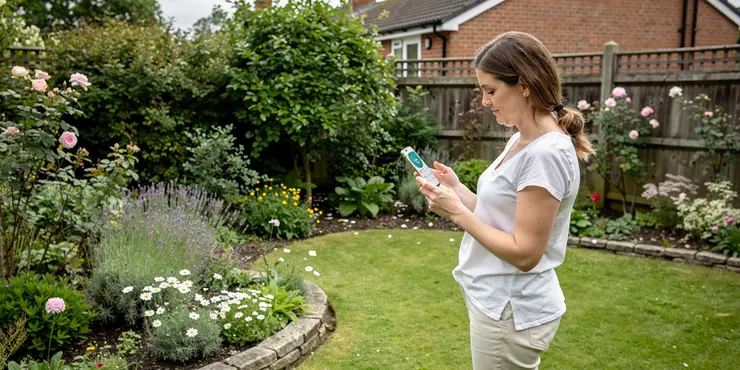
How can I reduce my exposure to pollen?
Relevance: 100%
-
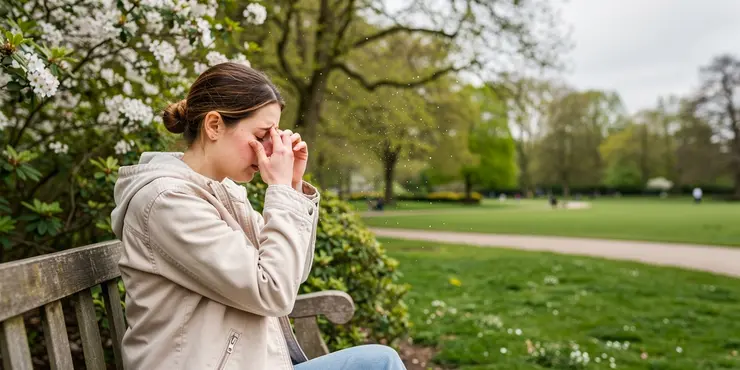
How does pollen affect people with hay fever?
Relevance: 56%
-

How are pollen counts measured?
Relevance: 54%
-
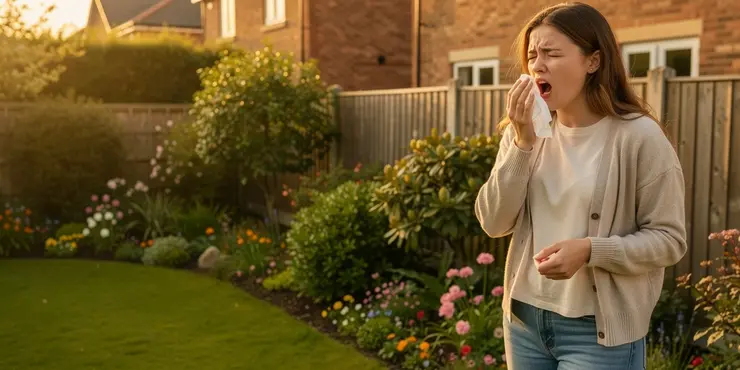
Experts Warn of Rising Hay Fever Cases as Pollen Counts Surge
Relevance: 52%
-
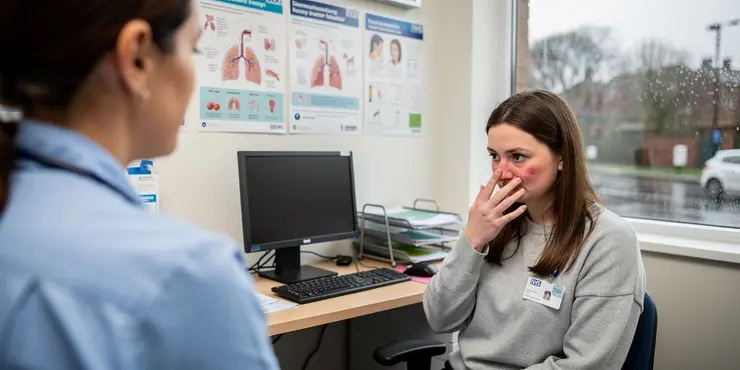
How does climate change affect pollen levels?
Relevance: 51%
-
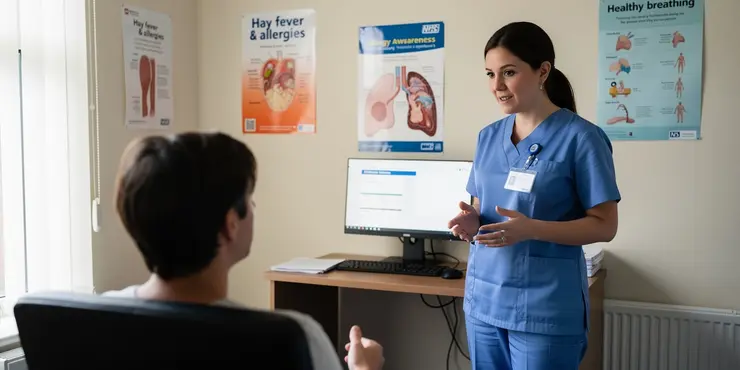
Do all plants produce pollen that causes hay fever?
Relevance: 46%
-
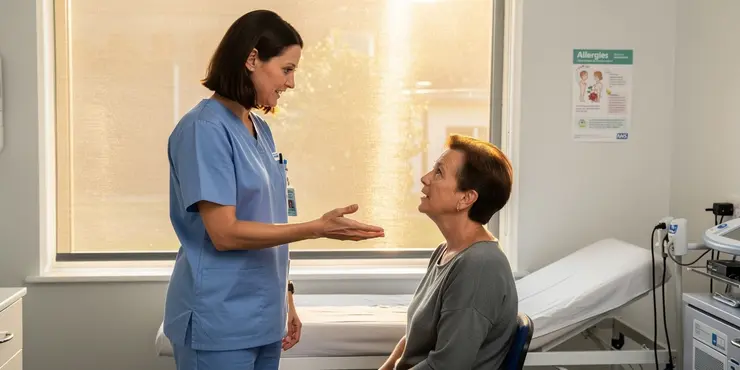
Can mosquito screens help reduce hay fever symptoms?
Relevance: 44%
-
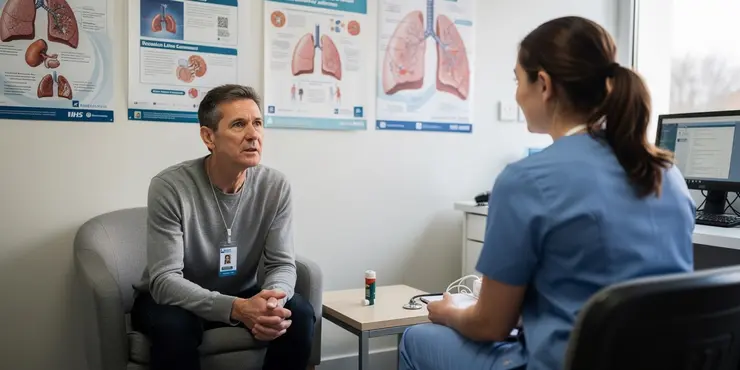
How can I reduce my exposure to air pollution if I have asthma?
Relevance: 37%
-
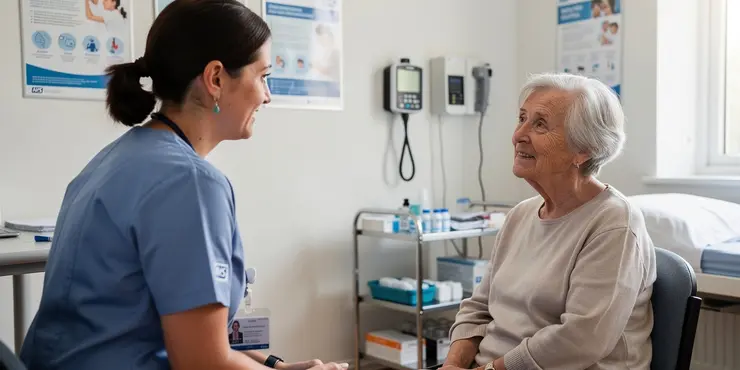
What are the long-term effects of repeated heatwave exposure?
Relevance: 36%
-
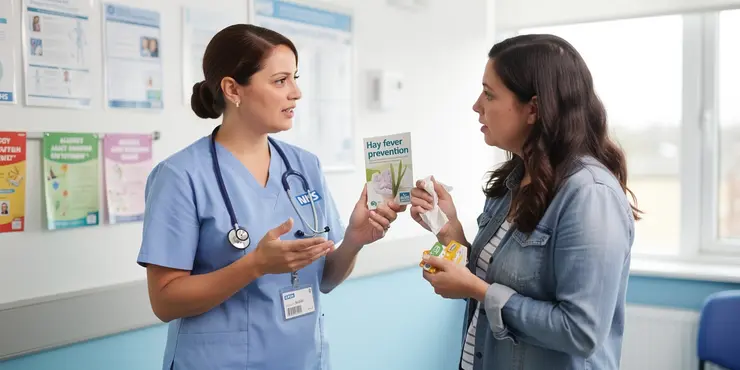
Can hay fever be prevented?
Relevance: 34%
-
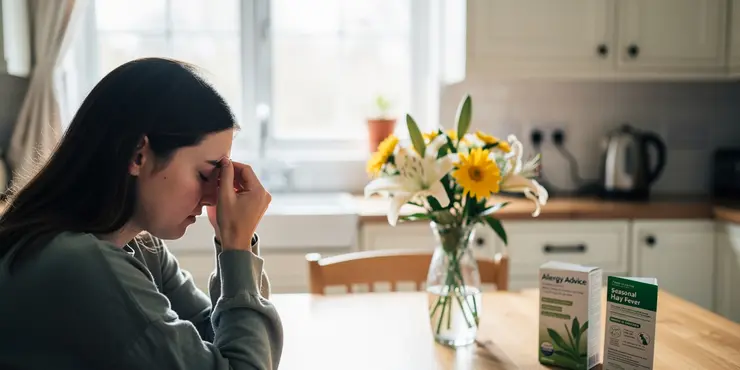
Dealing with Seasonal Allergies
Relevance: 30%
-
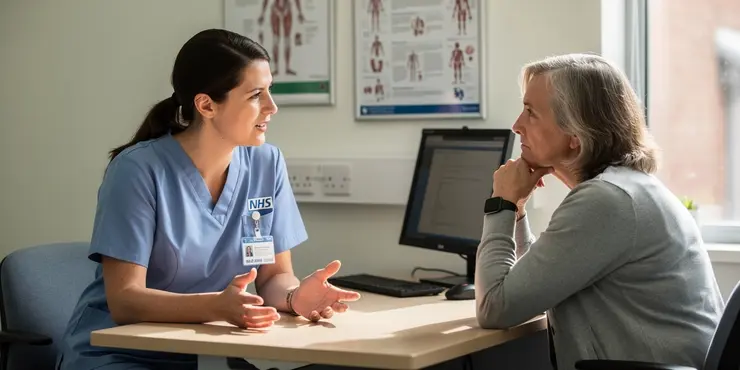
Why are experts warning of rising hay fever cases?
Relevance: 30%
-
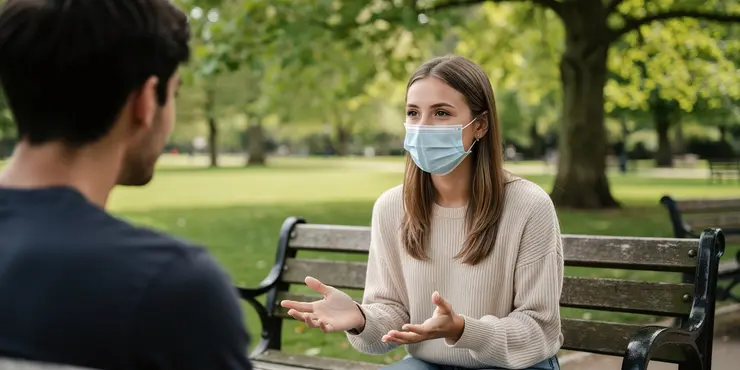
Do masks help with hay fever?
Relevance: 30%
-
Is pre-tanning in a sunbed a good way to prepare my skin for sun exposure?
Relevance: 30%
-
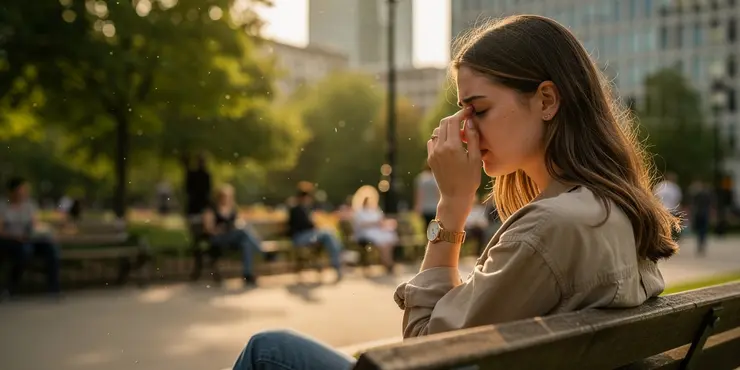
Is hay fever more common in urban areas?
Relevance: 29%
-
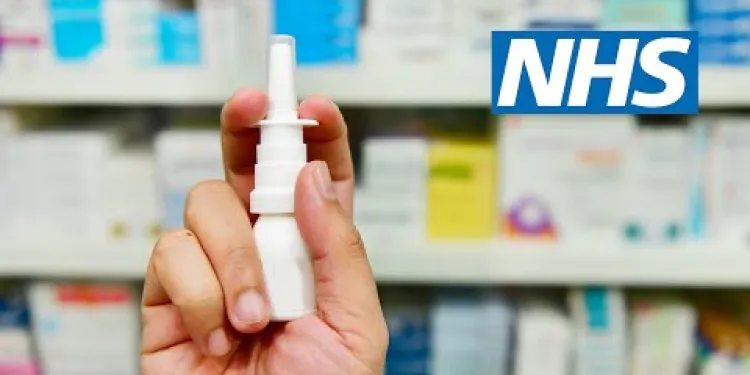
Hay fever advice | NHS
Relevance: 28%
-

What professions are at higher risk of methanol exposure?
Relevance: 27%
-
Does tanning on sunbeds reduce the risk of future sunburns?
Relevance: 26%
-
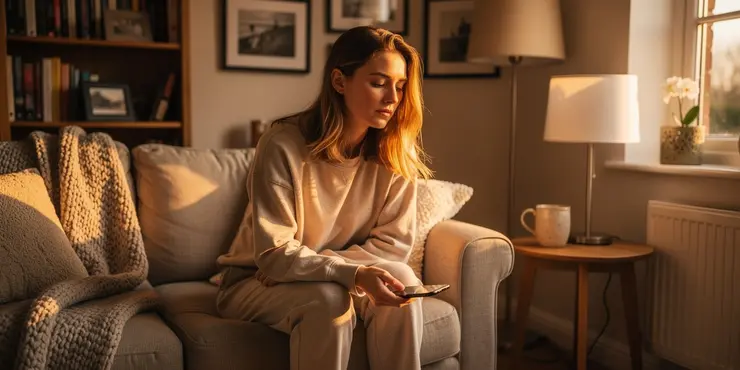
Can reducing screen time improve sleep quality?
Relevance: 25%
-
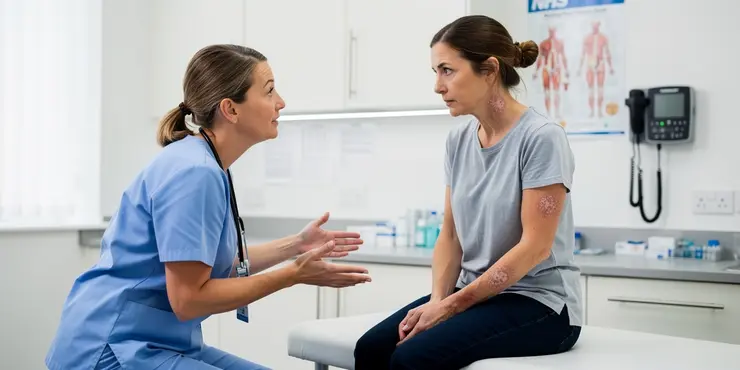
What causes nettle rash?
Relevance: 25%
-

Can hay fever occur year-round?
Relevance: 24%
-
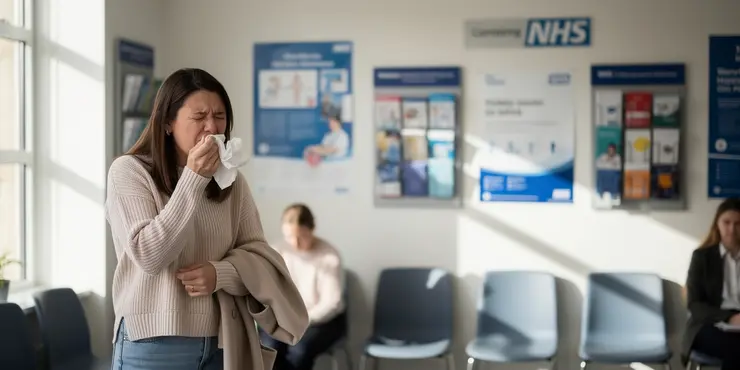
What is hay fever?
Relevance: 24%
-
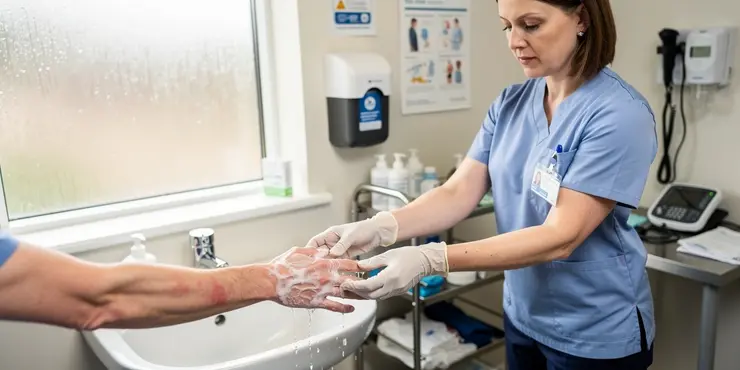
What first aid measures can be taken in case of methanol exposure?
Relevance: 23%
-
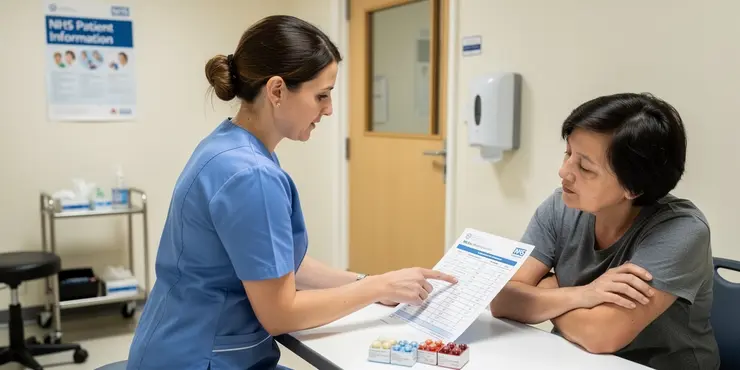
What are some tips for reducing screen time to improve sleep?
Relevance: 22%
-
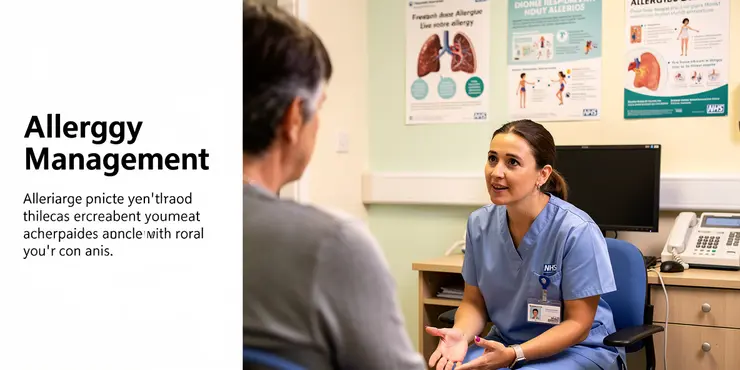
Is there a link between hay fever and asthma?
Relevance: 22%
-
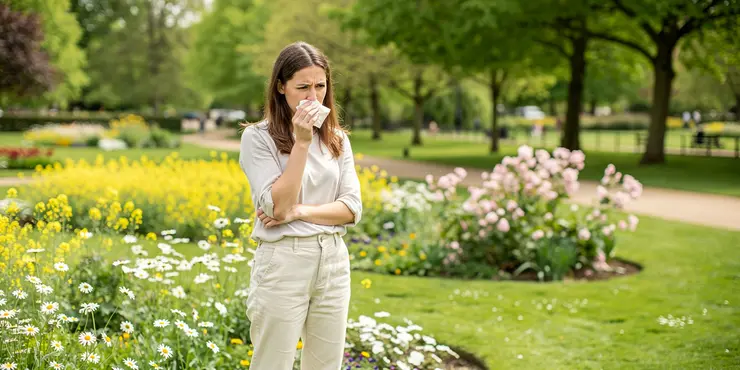
Are some people more prone to hay fever?
Relevance: 22%
-
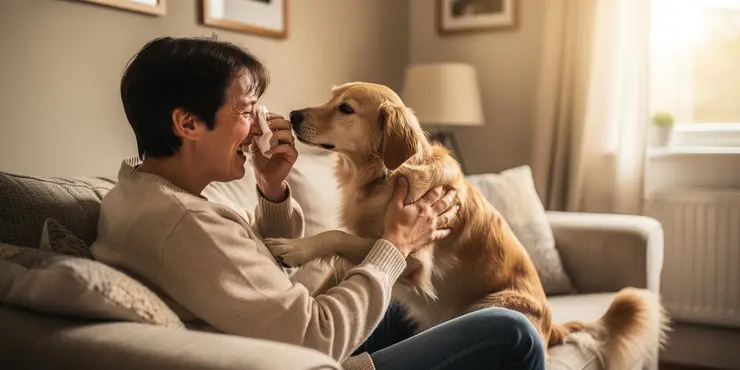
Do pets contribute to hay fever?
Relevance: 22%
-
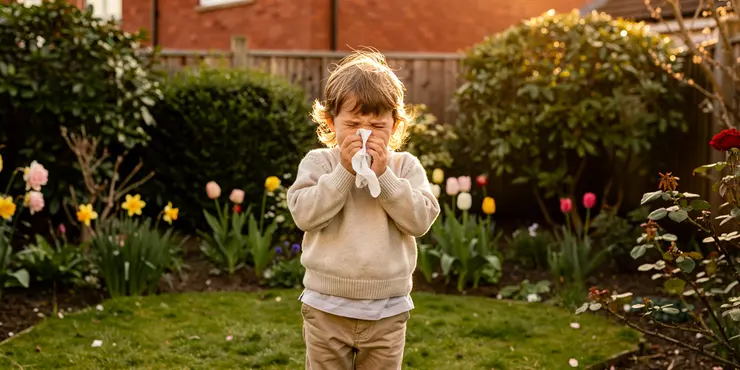
Can children develop hay fever?
Relevance: 22%
-
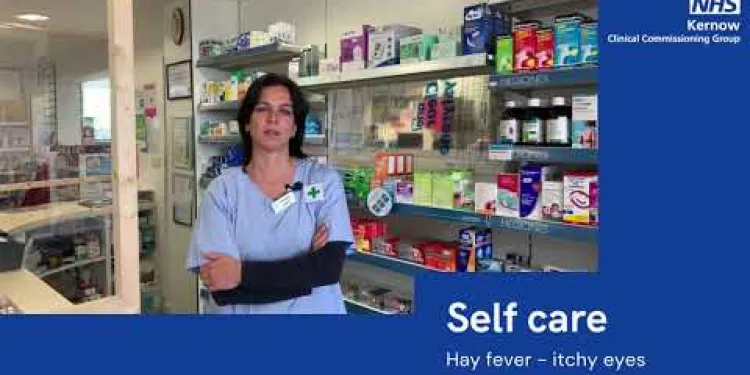
Self care - hay fever itchy eyes
Relevance: 21%
-
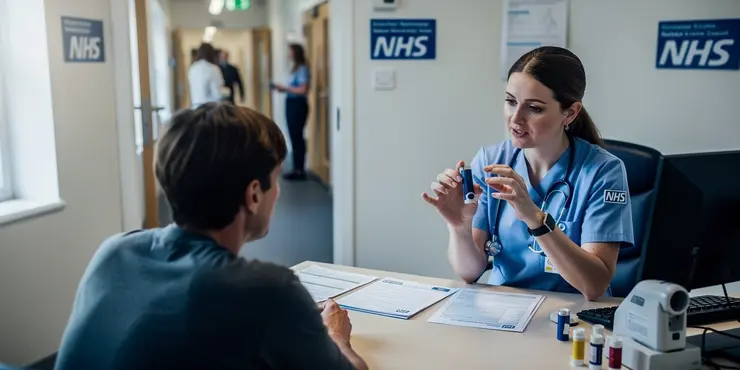
How can asthma attacks be prevented?
Relevance: 20%
-
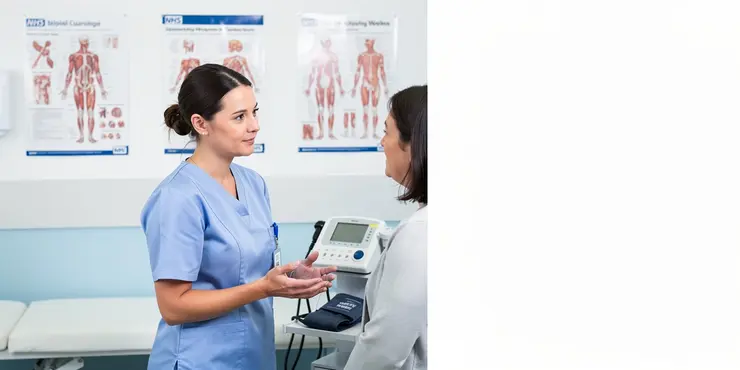
Does Paracetamol reduce inflammation?
Relevance: 20%
-
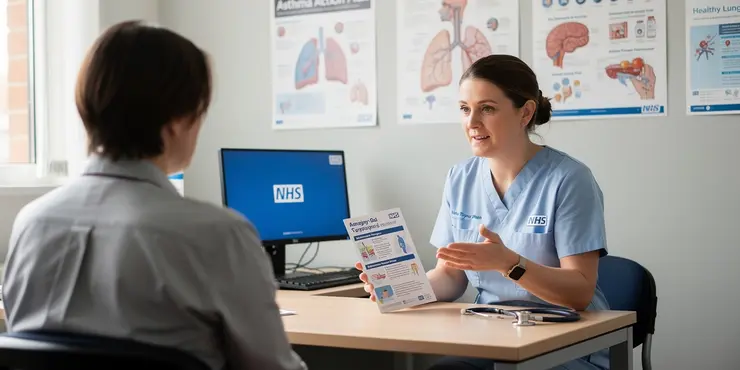
What triggers asthma attacks?
Relevance: 20%
-
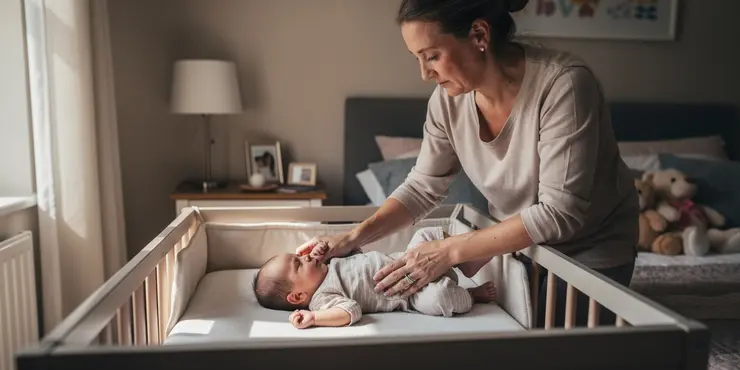
Safe sleeping and reducing the risk of Sudden Infant Death Syndrome (SIDS)
Relevance: 19%
-
How can I reduce my salt intake?
Relevance: 19%
-
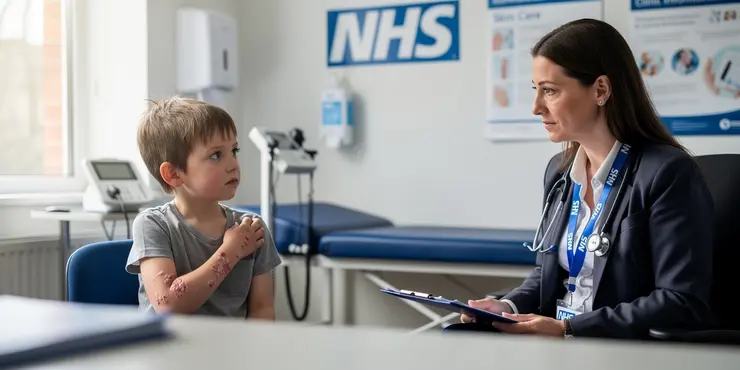
What causes eczema?
Relevance: 19%
-
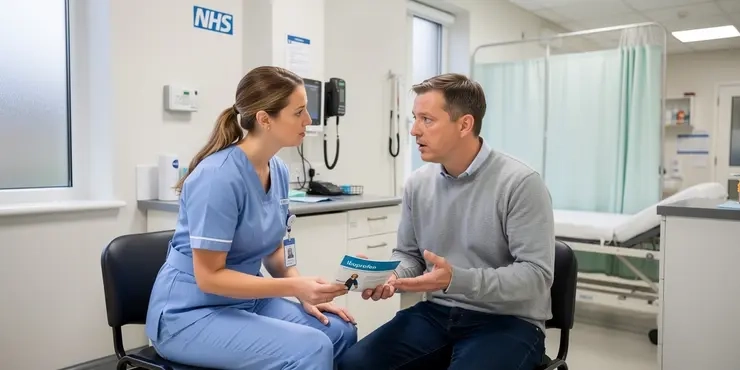
Can Ibuprofen be used to reduce inflammation?
Relevance: 19%
-
How can I reduce my sugar intake?
Relevance: 19%
-
How do I reduce unhealthy fat consumption?
Relevance: 19%
-
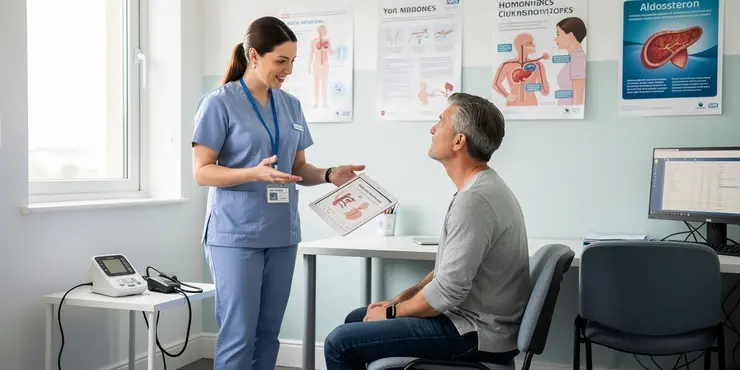
Why is reducing aldosterone levels important?
Relevance: 19%
-

Is it possible to reduce the Inheritance Tax bill?
Relevance: 19%
Understanding Pollen Exposure
Pollen allergies, often referred to as hay fever, can cause significant discomfort during certain times of the year. In the UK, pollen levels tend to be higher during spring and summer, when grasses, trees, and weeds release pollen into the atmosphere. Understanding when pollen levels are high and taking proactive measures can help reduce exposure and alleviate allergy symptoms.
Monitor Pollen Counts
Keeping track of daily pollen counts can be an effective way to manage exposure. Various weather websites and apps provide daily updates on pollen levels, specific to different regions in the UK. During days with particularly high pollen counts, it might be advisable to stay indoors as much as possible, especially during the early morning and late afternoon when pollen levels usually peak.
Modify Outdoor Activities
If you must be outdoors, try to plan activities later in the day when pollen levels typically decrease. Engaging in outdoor exercises such as running or cycling may increase exposure, so consider shifting your routine to off-peak times. Also, wearing sunglasses can help protect your eyes from direct pollen exposure, and a wide-brimmed hat might prevent pollen from settling in your hair.
Allergy-Proof Your Home
Keeping your home as a pollen-free zone as possible is crucial in managing allergies. Ensure windows and doors are closed during high pollen seasons, especially during peak hours. Using an air purifier with a HEPA filter can capture pollen and other allergens effectively. Regularly cleaning surfaces and vacuuming with a HEPA filter-equipped vacuum cleaner can reduce pollen accumulation indoors.
Take Precautionary Measures
Showering and changing clothes after spending time outdoors can significantly reduce pollen exposure. This prevents pollen that clings to your skin and hair from being transferred indoors. Drying clothes and bedding indoors rather than on outdoor lines can also prevent pollen from sticking to fabrics.
Use Medications and Treatments
Consult with a healthcare provider about suitable allergy medications that can help manage symptoms. Over-the-counter antihistamines, nasal sprays, and eye drops are commonly used to alleviate pollen allergy symptoms. For those with severe allergies, a doctor may recommend immunotherapy or allergy shots, which can provide long-term relief.
Stay Informed and Prepared
Being prepared and informed can make a significant difference in managing pollen allergies. Consider keeping a diary of your symptoms to identify patterns and triggers, and use this information to adjust your lifestyle accordingly. Effective planning and making necessary adjustments to daily routines can go a long way in reducing pollen exposure and improving quality of life during allergy season.
Understanding Pollen Exposure
Pollen allergies, also called hay fever, can make you feel very uncomfortable. In the UK, pollen is more common in spring and summer. This is when grasses, trees, and weeds let out pollen. Knowing when pollen levels are high can help you avoid it and feel better.
Monitor Pollen Counts
Watching pollen counts each day can help you avoid too much pollen. Weather websites and apps in the UK tell you the daily pollen levels. On days when the pollen count is high, try to stay inside. This is important in the early morning and late afternoon when pollen is usually highest.
Modify Outdoor Activities
If you need to go outside, try to do things later in the day when pollen is lower. Running or biking outside can increase pollen exposure, so try to do them at times when pollen is low. Wearing sunglasses can help keep pollen out of your eyes. Wearing a wide hat can stop pollen from getting in your hair.
Allergy-Proof Your Home
Keeping your home free of pollen helps with allergies. Close windows and doors when pollen is high, especially at peak times. Use an air purifier with a HEPA filter to trap pollen. Clean often and use a vacuum with a HEPA filter to reduce pollen in your home.
Take Precautionary Measures
Shower and change clothes after being outside to remove pollen from your skin and hair. Dry clothes and bedding indoors to stop pollen from sticking to them.
Use Medications and Treatments
Talk to a healthcare provider about allergy medicines. Over-the-counter medicines like antihistamines, nose sprays, and eye drops can help with symptoms. If allergies are very bad, a doctor might suggest allergy shots for long-term relief.
Stay Informed and Prepared
Being ready and knowing what to expect can help with pollen allergies. Keep a diary of your symptoms to find out what makes them worse. Use this information to make changes in your daily life. Planning and changing your routine can help reduce pollen exposure and improve how you feel during allergy season.
Frequently Asked Questions
What is pollen and why should I reduce exposure to it?
Pollen is a fine powder produced by plants for fertilization. It can cause allergic reactions in sensitive individuals, leading to symptoms like sneezing, runny nose, and itchy eyes.
What are common symptoms of pollen allergies?
Common symptoms include sneezing, nasal congestion, runny nose, itchy or watery eyes, throat irritation, and sometimes fatigue.
When is pollen season?
Pollen seasons vary by region and plant type, typically starting in late winter or spring with tree pollen, followed by grass pollen in late spring to summer, and weed pollen in late summer to fall.
How can I track pollen levels?
You can track pollen levels using weather websites, dedicated allergy apps, and local news reports that provide daily pollen counts.
What steps can I take to reduce pollen exposure indoors?
Keep windows closed during high pollen days, use air purifiers with HEPA filters, and regularly clean air conditioning and ventilation systems.
How can I reduce outdoor pollen exposure?
Limit outdoor activities on high pollen days, wear sunglasses, and consider wearing a mask during peak pollen times.
Should I shower after being outside?
Yes, showering can help remove pollen from your skin and hair, reducing continued exposure.
What clothing tips help reduce pollen exposure?
Wearing hats and sunglasses can help protect your face and eyes from pollen, and changing clothes after being outside can prevent indoor pollen spread.
How does using a dehumidifier help with pollen allergies?
Dehumidifiers reduce indoor humidity, which can limit mold growth and help air purifiers work more effectively to remove pollen.
Can pets bring pollen into the home?
Yes, pollen can attach to pets' fur when they're outside, so it's important to brush and wash them regularly during pollen season.
Is there a best time of day to avoid pollen exposure?
Pollen levels are often highest in the early morning and late afternoon, so limiting outdoor activities during these times can help.
What role do masks play in reducing pollen exposure?
Masks, especially those with HEPA filters, can reduce the amount of pollen you inhale when you are outside.
Can certain plants around my home reduce pollen levels?
While no plants can eliminate pollen, selecting non-wind-pollinated plants for your garden can reduce local pollen exposure.
Are there any medications that can help with pollen allergies?
Yes, antihistamines, decongestants, and nasal corticosteroids can alleviate allergy symptoms. Consult with a healthcare provider for recommendations.
How often should I clean or change air filters to reduce pollen exposure?
Regularly check and replace air filters every 1-3 months, especially during peak pollen seasons, to maintain indoor air quality.
Can washing clothes help reduce exposure to pollen?
Yes, washing clothes worn outside frequently removes pollen, and drying them in a dryer instead of air-drying outside can prevent pollen accumulation.
Do air purifiers help with pollen allergies?
Yes, using HEPA air purifiers can significantly reduce indoor pollen levels and help alleviate allergy symptoms.
What are some natural remedies for pollen allergies?
Some people find relief using natural remedies like saline nasal rinses, honey, probiotics, and quercetin, though evidence varies, and it's best to consult a healthcare provider.
How can I create an allergen-free sleeping environment?
Use hypoallergenic bedding, wash bed linens weekly in hot water, and keep bedrooms pet-free and windows closed to minimize pollen.
Is it helpful to wear glasses or sunglasses during pollen season?
Yes, wearing glasses or sunglasses can help protect your eyes from pollen, reducing the risk of irritation and allergic reactions.
What is pollen and why should I stay away from it?
Pollen is a tiny powder made by plants.
Some people get sneezy and itchy from pollen.
Here are some tips to help you:
- Stay indoors when there is a lot of pollen outside.
- Keep windows closed to stop pollen coming inside.
- Wear sunglasses to keep pollen out of your eyes.
- Use tissues to catch sneezes.
These things can help you feel better.
Pollen is a tiny powder made by plants. It helps plants grow more plants. Some people are allergic to pollen. This means it can make them sneeze, have a runny nose, or get itchy eyes.
What signs show you might have a pollen allergy?
Some common signs are:
- Sneezing
- Stuffy nose
- Runny nose
- Itchy or watery eyes
- Sore throat
- Feeling tired
If you have trouble reading, you can ask someone for help. You can also use audiobooks or voice-to-text apps to make reading easier.
When is flower dust time?
Flower dust time is when plants make lots of tiny bits called pollen. This is mostly in spring and summer when plants grow and bloom. Different plants have different flower dust times.
To help know flower dust time:
- Watch weather reports for pollen info.
- Use phone apps that tell you about pollen levels.
Pollen comes from plants and can cause allergies. Different plants make pollen at different times.
First, in late winter or spring, trees make pollen. Next, in late spring to summer, grass makes pollen. Last, in late summer to fall, weeds make pollen.
Using a calendar or an app can help you track pollen seasons in your area.
How can I find out pollen levels?
Pollen is tiny stuff from plants. It can make some people sneeze and feel bad.
You can use these tips to know pollen levels:
- Check the weather forecast on TV or online. They often talk about pollen.
- Use weather apps on your phone. Some apps show pollen levels.
- Read signs at local places like the library or community board. They may have pollen info.
If pollen makes you feel bad, talk to a doctor. They can help you feel better.
You can find out how much pollen is in the air by checking weather websites. There are also special apps for allergies that tell you about pollen. Sometimes, local news reports will give you this information too. It's good to check these every day.
How can I keep pollen out of my home?
Keep windows shut on days when there's lots of pollen in the air. Use machines that clean the air with special HEPA filters. Clean your air conditioners and vents often.
How can I stay away from outdoor pollen?
Try to stay inside when there is a lot of pollen outside. Wear sunglasses to keep pollen out of your eyes. You can also wear a mask to help you breathe better when there is a lot of pollen in the air.
Do I need to shower after going outside?
Yes, having a shower can help wash away pollen from your skin and hair. This means you won't keep getting pollen on you.
How can clothes help you stay away from pollen?
Here are some simple tips:
- Wear a hat to keep pollen off your hair.
- Put on sunglasses to protect your eyes.
- Choose long-sleeved shirts and long pants to cover your skin.
- Change clothes as soon as you get home to remove any pollen.
- Wash clothes regularly to get rid of pollen.
If you find reading hard, try using a text-to-speech app to read this out loud. Listening might be easier for you.
Wearing a hat and sunglasses can help keep pollen off your face and out of your eyes. Changing your clothes after you have been outside stops pollen from getting into your home.
How can a dehumidifier help with allergies from pollen?
Dehumidifiers make the air inside less damp. This can stop mold from growing. It also helps air purifiers clean things like pollen better.
You can use tools like picture cards or apps to help understand new words.
Can pets bring pollen into the home?
Do pets carry pollen into the house?
- Pets like cats and dogs can get pollen on their fur.
- Pollen can come inside your home on their fur.
- Pollen may make you sneeze or make your eyes itchy.
Here are some tips to help:
- Brush your pet outside before they come inside.
- Give your pet regular baths.
- Vacuum your home often.
- Keep a clean towel by the door to wipe your pet's feet.
Yes, pollen can stick to your pets' fur when they go outside. It's a good idea to brush and wash your pets often when there's a lot of pollen in the air.
When is the best time to stay away from pollen?
Pollen is something in the air that can make you sneeze or feel itchy. Some times of the day have more pollen in the air than others.
The best time to go outside is in the late afternoon or evening. In the morning, there is usually more pollen.
Try using tissues, sunglasses, or a hat to help keep pollen away. You can also check the weather report to know the pollen count for the day.
Pollen can be at its highest in the early morning and late afternoon. It can help to do less outside during these times.
How do masks help keep pollen away?
Masks can help you breathe in less pollen when you are outside. Masks with HEPA filters work best.
Can some plants help lower pollen near my home?
Some plants can help keep pollen lower around your home. You can choose plants that do not make a lot of pollen.
Here are some tips to help:
- Pick plants with big, bright flowers. They make less pollen.
- Choose plants that do not release pollen into the air easily.
- Keep your garden clean and tidy. This helps reduce pollen.
Using a calendar to mark when plants bloom can help you keep track of pollen levels.
Use newsletters or websites to learn more about plants and pollen. You can also ask for help at a garden center.
No plants can get rid of pollen, but if you choose plants that don't use the wind to spread their pollen, there will be less pollen around your garden.
Can medicine help with pollen allergies?
Yes, some medicines can help with allergies. These are called antihistamines, decongestants, and nasal sprays. Talk to a doctor to find out which one is best for you.
When should I clean or change air filters to help with pollen?
You should clean or change the air filter in your house or car often. This can help you breathe better by keeping pollen away.
Try to do this every month. If there is a lot of pollen, you might need to do it more often.
Here are some tools to help you:
- Set a reminder on your phone.
- Use stickers on a calendar to mark when to check the filters.
Check the air filter every month. Change it every 1 to 3 months. Do this more often when there is a lot of pollen. This helps keep the air inside clean.
Can washing clothes help if you have allergies to pollen?
Washing your clothes can help get rid of pollen on them. This keeps pollen away from your skin and nose.
Use these tips:
- Wash often: Clean clothes after being outside.
- Dry indoors: Hang clothes inside so more pollen does not stick to them.
If you follow these steps, it might help you feel better.
Yes, washing clothes after you wear them outside can help remove pollen. If you use a dryer to dry your clothes instead of hanging them outside, it can stop more pollen from sticking to them.
Can air cleaners help with pollen allergies?
People with pollen allergies sneeze a lot and have itchy eyes. Can air cleaners make these allergies better?
An air cleaner is a machine that cleans the air. It takes away tiny things like dust and pollen.
Some tools that can help you understand are:
- Picture guides: Use pictures to understand what air cleaners do.
- Simple videos: Watch short videos about how air cleaners work.
Yes, using HEPA air purifiers can make the air inside cleaner. They take away a lot of pollen, which can help people feel better if they have allergies.
What can help with pollen allergies?
Here are some things that might help:
- Drink lots of water.
- Wash hands and face often.
- Use a neti pot or nasal rinse.
- Eat foods like honey and ginger.
You can also use tools like:
- An air purifier to clean the air.
- Sunglasses to keep pollen away from eyes.
Some people feel better by using things from nature. You can try washing your nose with salty water, eating honey, taking probiotics, or using quercetin. These might help you, but they work differently for everyone. It’s a good idea to talk to a doctor first.
How can I make a bedroom safe from things people might be allergic to?
Use special bedding that doesn't cause allergies. Wash your sheets every week in hot water. Keep pets out of your bedroom and keep the windows closed to help keep pollen away.
Do glasses or sunglasses help when there is a lot of pollen?
During pollen season, wearing glasses or sunglasses can help keep pollen out of your eyes. This can make your eyes feel better. Ask a grown-up if glasses or sunglasses can help you. They can help you find the right pair to protect your eyes.
Yes, wearing glasses or sunglasses can help keep pollen out of your eyes. This can stop your eyes from getting itchy or sore from allergies.
Useful Links
This website offers general information and is not a substitute for professional advice.
Always seek guidance from qualified professionals.
If you have any medical concerns or need urgent help, contact a healthcare professional or emergency services immediately.
Some of this content was generated with AI assistance. We’ve done our best to keep it accurate, helpful, and human-friendly.
- Ergsy carfully checks the information in the videos we provide here.
- Videos shown by Youtube after a video has completed, have NOT been reviewed by ERGSY.
- To view, click the arrow in centre of video.
- Most of the videos you find here will have subtitles and/or closed captions available.
- You may need to turn these on, and choose your preferred language.
- Go to the video you'd like to watch.
- If closed captions (CC) are available, settings will be visible on the bottom right of the video player.
- To turn on Captions, click settings .
- To turn off Captions, click settings again.
More Items From Ergsy search
-

How can I reduce my exposure to pollen?
Relevance: 100%
-

How does pollen affect people with hay fever?
Relevance: 56%
-

How are pollen counts measured?
Relevance: 54%
-

Experts Warn of Rising Hay Fever Cases as Pollen Counts Surge
Relevance: 52%
-

How does climate change affect pollen levels?
Relevance: 51%
-

Do all plants produce pollen that causes hay fever?
Relevance: 46%
-

Can mosquito screens help reduce hay fever symptoms?
Relevance: 44%
-

How can I reduce my exposure to air pollution if I have asthma?
Relevance: 37%
-

What are the long-term effects of repeated heatwave exposure?
Relevance: 36%
-

Can hay fever be prevented?
Relevance: 34%
-

Dealing with Seasonal Allergies
Relevance: 30%
-

Why are experts warning of rising hay fever cases?
Relevance: 30%
-

Do masks help with hay fever?
Relevance: 30%
-
Is pre-tanning in a sunbed a good way to prepare my skin for sun exposure?
Relevance: 30%
-

Is hay fever more common in urban areas?
Relevance: 29%
-

Hay fever advice | NHS
Relevance: 28%
-

What professions are at higher risk of methanol exposure?
Relevance: 27%
-
Does tanning on sunbeds reduce the risk of future sunburns?
Relevance: 26%
-

Can reducing screen time improve sleep quality?
Relevance: 25%
-

What causes nettle rash?
Relevance: 25%
-

Can hay fever occur year-round?
Relevance: 24%
-

What is hay fever?
Relevance: 24%
-

What first aid measures can be taken in case of methanol exposure?
Relevance: 23%
-

What are some tips for reducing screen time to improve sleep?
Relevance: 22%
-

Is there a link between hay fever and asthma?
Relevance: 22%
-

Are some people more prone to hay fever?
Relevance: 22%
-

Do pets contribute to hay fever?
Relevance: 22%
-

Can children develop hay fever?
Relevance: 22%
-

Self care - hay fever itchy eyes
Relevance: 21%
-

How can asthma attacks be prevented?
Relevance: 20%
-

Does Paracetamol reduce inflammation?
Relevance: 20%
-

What triggers asthma attacks?
Relevance: 20%
-

Safe sleeping and reducing the risk of Sudden Infant Death Syndrome (SIDS)
Relevance: 19%
-
How can I reduce my salt intake?
Relevance: 19%
-

What causes eczema?
Relevance: 19%
-

Can Ibuprofen be used to reduce inflammation?
Relevance: 19%
-
How can I reduce my sugar intake?
Relevance: 19%
-
How do I reduce unhealthy fat consumption?
Relevance: 19%
-

Why is reducing aldosterone levels important?
Relevance: 19%
-

Is it possible to reduce the Inheritance Tax bill?
Relevance: 19%


